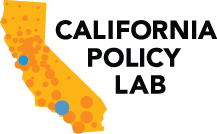- By:
- Category:

Sacramento, September 7, 2022 — A new report and accompanying policy brief from the nonpartisan California Policy Lab (CPL) summarizes findings from an in-depth research study conducted with the California Workforce Development Board (CWDB) to estimate the impacts of ten workforce training programs that collectively serve over a million Californians each year.
To better assess the impact of these programs, the California Workforce Development Board created the Cross-System Analytics and Assessment for Learning and Skills Attainment (CAAL-Skills) partnership. Through this partnership, seven California agencies share data to create a centralized database. By linking CAAL-Skills data to earnings data, CPL was able to measure the impacts the programs had on participants’ employment and earnings up to three years after program entry.
“CAAL-Skills is a game-changer. Before CAAL-Skills, we knew what we wanted our workforce programs to do: give equitable access to high-quality jobs. But we didn’t have a way to measure our progress that was consistent and easy to understand,” said Tim Rainey, Executive Director of the California Workforce Development Board. “With the help of our research partner, the California Policy Lab, CAAL-Skills gives us the tools, the data, and through conversations with partner agencies, provides us a gauge of how well our workforce development system is doing.”
“We were able to estimate causal impacts for eight of the ten programs, and we found that all eight had positive impacts on participants’ employment prospects. Five of the eight programs also led to increased earnings for participants,” explains co-author Jesse Rothstein, Chancellor’s Professor of Public Policy and Economics at UC Berkeley and the faculty director of the California Policy Lab’s UC Berkeley site. “These programs help Californians climb the economic ladder, and we’re glad we could play a role in helping to better measure their impact and expand upon what we know about these programs.”
“The state of California provides workforce support and training programs to more than a million Californians every year and this research is an important step forward for understanding the impact these programs have in terms of increasing peoples’ earnings and employment prospects,” comments co-author Till von Wachter, a UCLA economics professor, and faculty director at the California Policy Lab’s UCLA site. “We look forward to diving more into the results and thinking through additional research to understand what’s working and what could be improved.”
The research team analyzed data for Californians who had participated in 10 workforce training programs during Fiscal Years 2014-15 and 2015-16. For each program, the team looked for a relevant population of non-participants who could have potentially entered the program but didn’t. Using these populations, participants’ earnings and employment outcomes were compared to matched individuals with similar demographic and earnings histories who did not receive training. The impact of the training was measured as the difference between the trainees’ outcomes and their matched “twins” up to three years after participating in the program. This strategy was successful at providing causal evidence for eight of the ten programs. However, the research team was unable to find suitable comparisons for the remaining two programs because they focus on special populations and finding non-participants for the comparisons wasn’t possible. The team also made suggestions to improve the data infrastructure and for future research ideas to help further understand and improve each of the training programs.
###
The California Policy Lab creates data-driven insights for the public good. Our mission is to partner with California’s state and local governments to generate scientific evidence that solves California’s most urgent issues, including homelessness, poverty, criminal justice reform, and education inequality. We facilitate close working partnerships between policymakers and researchers at the University of California to help evaluate and improve public programs through empirical research and technical assistance.
